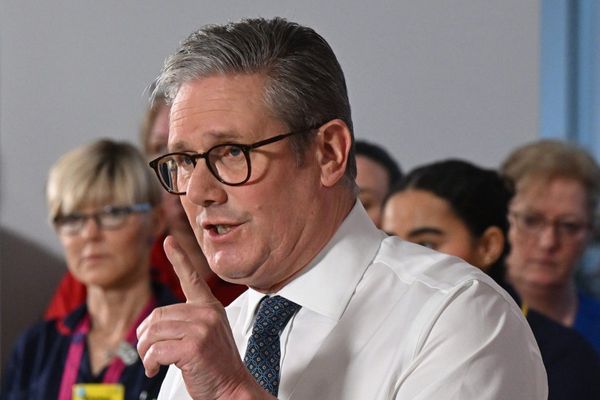
It’s hard to work out the logic of Labor’s new mandate to the Future Fund. Is it pointless rhetoric, or an intervention in what should be an independent body dedicated to covering the cost of the government’s own superannuation obligations?
Shorn of its language about “elevating its status as an enduring national asset and making the fund an ongoing feature of Australia’s economy” (somehow it was neither of these until now), the announcement from Treasurer Jim Chalmers and Finance Minister Katy Gallagher promises an “investment mandate [that] will require the fund to consider Australia’s national priorities in its investment decisions, where possible, appropriate and consistent with strong returns”. Those priorities are housing, the transition to renewable energy and “delivering improved infrastructure located in Australia including economic resilience and security infrastructure”.
Yes, that’s almost certainly the stench of AUKUS emanating from that last phrase. Not merely does Labor want to blow $400 billion on entirely unnecessary subs that may well never be delivered, it wants the Future Fund to help pay for it.
Except the government is at pains to insist it’s not using a new statement of expectations to force the Future Fund to do anything. Merely that the Future Fund — now chaired by Labor’s Greg Combet, an echo of a more talented Labor frontbench from an earlier generation — need, while continuing to prioritise returns, to be “cognisant of these national priorities”.
“Cognisant”.
The obvious question is, if the Future Fund saw the best opportunity for returns in the residential property market, or energy infrastructure, or building a new submarine base for nuclear vessels, it would invest in these things — so why does it need a mandate to “be cognisant” of such areas? What will the Future Fund do differently now than before? Engage in a box-ticking exercise to check that it had run the ruler over every security infrastructure or housing deal before deciding to invest elsewhere? What’s the point?
If the Coalition were in office and the Future Fund was being directed to be “cognisant” of investing in fossil fuels, would Labor be talking about how it was “not an especially controversial change”?
The rich irony is that Chalmers is telling the Future Fund to be “cognisant” of renewable energy projects while Labor is encouraging, and helping to fund, investment in fossil fuel projects. It’s committed to half a billion dollars for geological surveying that it will hand fossil fuel companies for free. It’s investing $1.5 billion to help build a gas export facility at Middle Arm in Darwin, with the help of some Labor mates. Fossil fuel companies get to dictate how much petroleum resource rent tax they pay (a reason why the Future Fund is currently $294 billion when Norway’s sovereign wealth fund, built on North Sea gas and oil revenues, is worth US$1.7 trillion).
This isn’t the first time Labor has tried to interfere — while insisting it isn’t interfering — with a key independent institution. It also used a statement of expectations to nobble the Productivity Commission (PC) this time last year — demanding the PC “take account of the government’s productivity agenda”, including “getting to net zero and becoming a renewable energy superpower”. The PC had already flagged concerns about Labor’s manufacturing subsidies and protectionism in its Future Made In Australia policy, but Chalmers’ statement seemed a warning shot for the PC not to dare criticise key parts of Labor’s policies. Chalmers also directed the PC to consult with government departments more — thus giving economically illiterate departments like Foreign Affairs and Trade a great role in shaping PC work — and to keep the secretary of Treasury in the loop about its activities.
Governments don’t issue these diktats randomly or merely for window dressing. The whole purpose of statements of expectations — a mechanism developed by the Howard government to bring agencies under greater political control — is to signal to senior bureaucrats, including the heads of independent institutions, how politicians expect them to carry out their roles. Chalmers’ new statement for the Future Fund is a set of indicators about where he wants the Future Fund to invest — whether it makes financial sense or not.
Have something to say about this article? Write to us at letters@crikey.com.au. Please include your full name to be considered for publication in Crikey’s Your Say. We reserve the right to edit for length and clarity.







